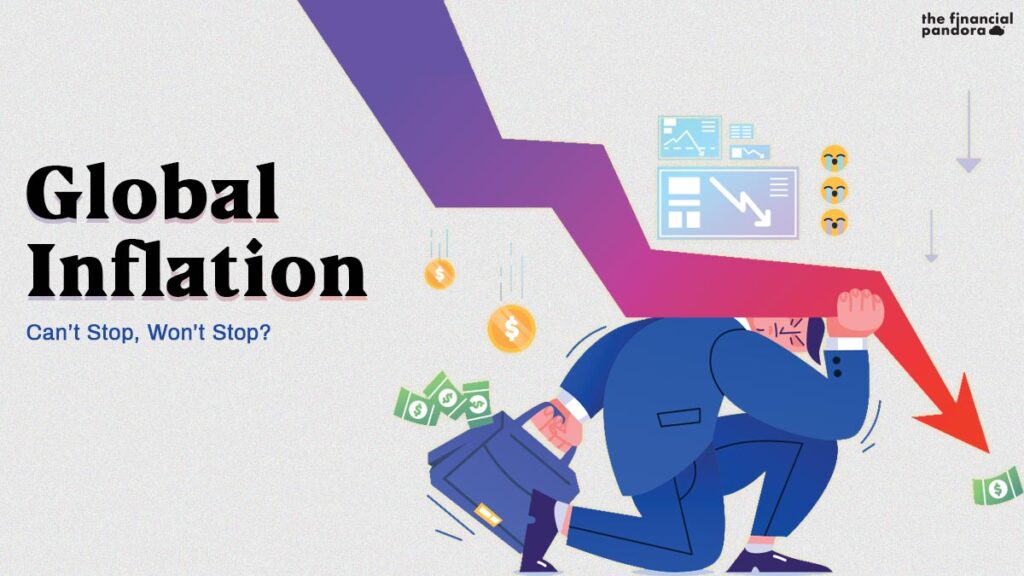“When the goals (low unemployment and low inflation) conflict and it comes to calling for tough trade-offs, to me, a wise and humane policy is occasionally to let inflation rise even when inflation is running above target.” – Janet Yellen (1995)
Golden rule – always take inflation seriously. Central banks do.
In January 2021, Maruti Suzuki had hiked the prices of its cars by up to Rs. 34,000 depending on the model and ranges. In April 2021, it hiked the prices of most of its models by up to Rs. 22,500. On 12 July, 2021, Maruti Suzuki hiked the prices of Swift and all CNG variants by up to Rs. 15,000. Tanking up a petrol variant of Maruti Swift 2021 on 28 January, 2021 in Delhi would have set you back by around Rs. 3,193. Tanking up that same car on 12 July, 2021 in Delhi would have set you back by around Rs. 3,744.
As the Indian economy is rising from a deep slumber induced by the pandemic, prices of durable goods and commodities have soared. In fact, prices are rising across the world’s economies – rising much faster than expected.
On 1 July, 2021, America’s Congressional Budget Office doubled its February 2021 growth estimate of 3.7% for America to 7.4%. Similarly, in May 2021, the Bank of England revised its February estimate of UK GDP growth for 2021 from 5% to 7.25%. A spurt in inflation has accompanied this spurt in growth. Indeed, much of the present fizzing of global inflation is owing to ‘base effects’ due to the fall in prices – particularly commodity prices – during 2020. Headline inflation of the euro area touched the European Central Bank’s target of “below, but close to 2%” by rising Y-o-Y from 0.9% to 1.9% in June 2021, and price pressures are expected to pick up again as services reopen. Not surprisingly, the Bank of England’s previous chief economist warned that British inflation, which has already breached the 2% threshold, would be closer to 4% by the end of the year. Moreover, central banks in Brazil, Mexico, and Russia are exercising monetary tightening by raising rates owing to rising inflation.
This boom in global inflation may hurt the lowest paid the most by eroding their wages. It may also compel central banks to slow the economy or engineer a recession to nip it in the bud. In addition, sky-high prices of stocks, bonds, houses, and even crypto-currency rely on the assumption of interest rates remaining low for a long time. The belief shall fall flat on its face if central banks feel forced to raise interest rates to fight inflation.
Three factors are bolstering this can’t, won’t stop rise of global inflation:
- Consumers are splurging on goods like household appliances to make their lockdown homes nicer and on goods like cars that make life outdoors safer as also more enjoyable. In America, cars, furniture, and sporting gear alone were responsible for more than four-fifths of core inflation overshoot. However, according to Goldman Sachs, this ‘one-off inflationary boost’ will soon flip to a ‘one-off disinflationary drag’. Then again, this is the same Goldman Sachs that downgraded its own GDP growth projections of India owing to the second wave of the pandemic. A truly Volatile, Uncertain, Complex, Ambiguous, Fearful, Unprecedented (VUCAFU) world we are living in.
- There is a disruption in the global supply of such goods. For example, a shortage of microchips is disrupting the supply of cars and electronics. Further, oil prices are on the rise, there is a disruption in the global shipping industry and at ports. Also, expanding microchip supply and shipping capacity in the face of a growing demand not only requires investment but also has longer delivery times unlike shortages of toilet roll and diagnostic tests in the early days of the pandemic that were overcome relatively quickly. However, in Europe, where demand is more modest, durable goods that were sensitive to these disruptions in supply were only 1.5% more expensive in May Y-o-Y, according to Morgan Stanley.
- Arguably the most important factor is that customers of restaurants, bars, salons, and other in-person businesses are returning at a faster rate to them than their workers are. Take the case of Uncle Sam. America’s leisure and hospitality workforce is still only 87.1% in size compared to the pre-pandemic days though it grew by 343,000 jobs in June. According to JP Morgan Wealth Management, it isn’t a lack of businesses wanting to hire but a lack of worker’s willingness to get back to the labour force. JP Morgan speculates this unwillingness to availability of supplemental unemployment benefits or workers not choosing to get vaccinated. It further predicts that workers will be driven out of this unwillingness when the unemployment benefits expire and society progresses towards herd immunity. However, JP Morgan is silent on Britain, India, and Australia that are also suffering worker shortages despite the absence of unemployment benefits. In India, it can be deduced that a low percentage of the population having been vaccinated and a comeback of the pandemic’s wave having revived the lockdowns understandably compel the labour to stay home. Such unemployment adds to the degree of upward wage pressure. Its implications are significant in a country like America where the Fed policy monitors the labour market as a key driver of inflation baskets.
As far as the impact of this rise in global inflation on financial markets is concerned, we can derive insights from McKinsey’s Global Economics Intelligence, May 2021 report. Expectations of inflation in financial markets jumped to 2.5% over ten years. This is well reflected in the difference between the conventional and inflation-indexed US Treasuries yields. Major equity markets across the globe were comparatively a lot more active and positive though some markets gained momentum and others remained flat. Globally, many currencies appreciated against the US dollar. However, emerging market currencies have fallen by an average of 1.5% since the Fed’s comparatively aggressive meet in June 2021. In May 2021, volatility indexes rose slightly. Some countries in Europe experienced an increase in bond yields.
Emerging markets must pay ken attention to American inflation. Monetary tightening by the Federal Reserve puts downward pressure on their currencies, thereby making imports more expensive for them and adding to their inflationary woes.
It is high time to ensure that the price paid for the boom in global inflation does not rise too high to lead to yet another doom. As if Lewis Carroll’s ‘The Lobster Quadrille’ from ‘Alice’s Adventures in Wonderland’ were the song being sung by global inflation to invite the central banks for a dance,
“Will you, won’t you, will you, won’t you, will you join the dance?
Will you, won’t you, will you, won’t you, won’t you join the dance?”
A dance with the beast of a rising global inflation to put the beast back in its cage.
Follow Us @





Well orchestrated, objective and insightful!
Thank you, Jishnu.